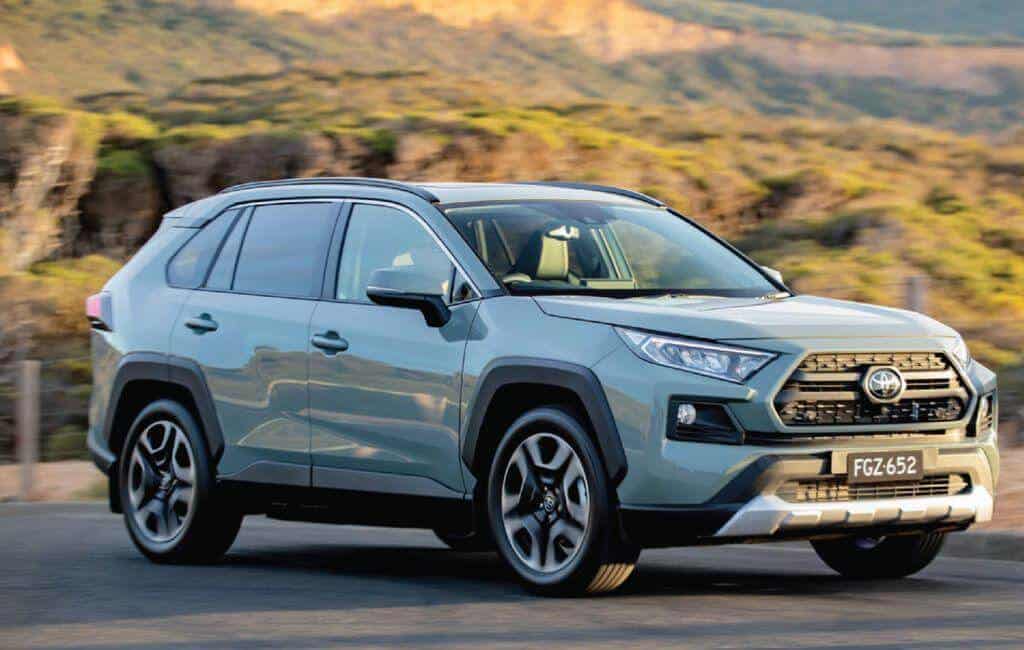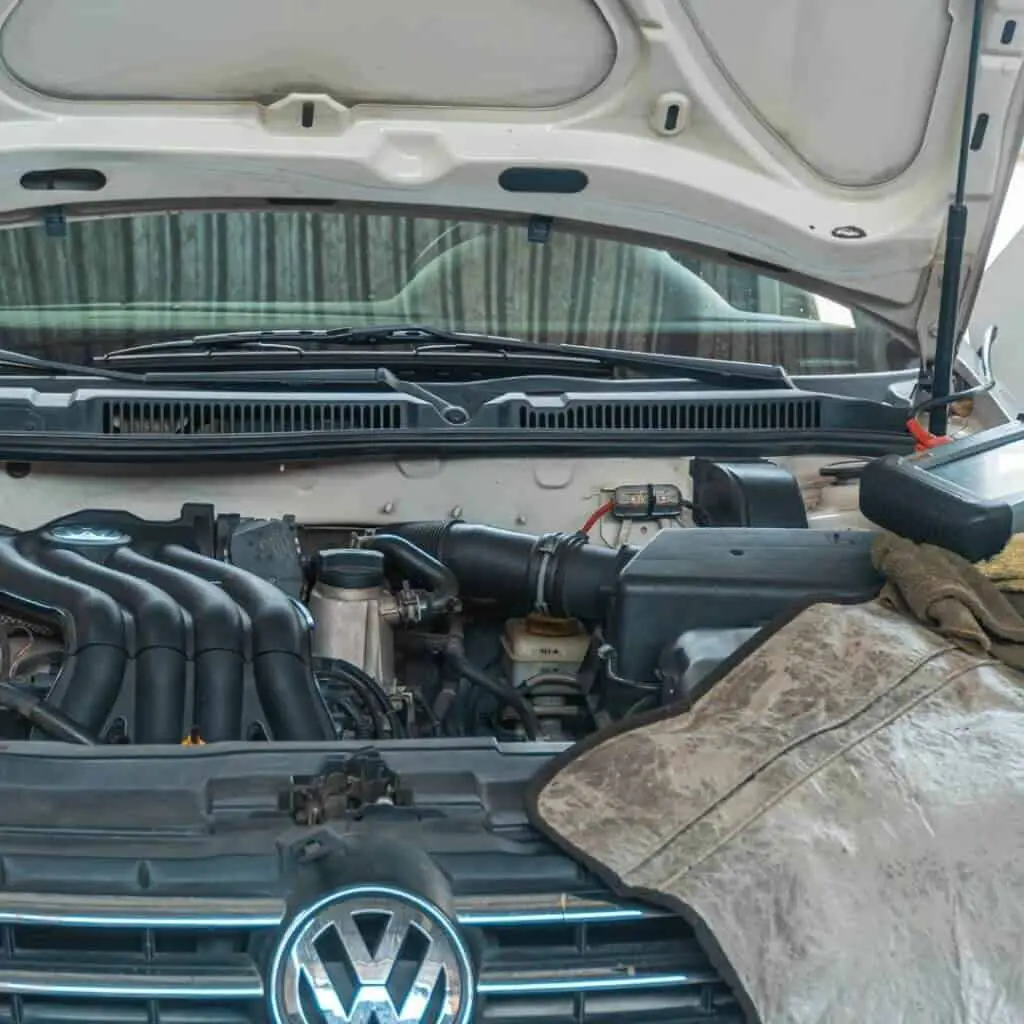Are you familiar with Toyota Kluger problems?
The Toyota Kluger is a popular midsize crossover SUV made for the Australian market. It is also known as the Toyota Highlander in some regional markets.
Like any other Toyota vehicle, Toyota Kluger comes with a reputation for reliability, versatility, and comfortable driving experience. It also offers strong performance and plenty of passenger space.
Older versions of this SUV come with 6-cylinder 3.5 petrol engines or 4-cylinder 2.4 liters engines. Hybrid technology was implemented in 2022.
And just like any vehicle on the market, Toyota Kluger has its challenges. It is crucial to note that not all Kluger owners experience these problems, and the severity can vary from vehicle to vehicle.
Toyota has taken steps to address these issues, many of which can be resolved through proper maintenance, timely repairs, and intime recalls.[1]
Common Toyota Kluger Problems

- Transmission Issues
Some Kluger owners have stated that their automatic transmission is problematic. The issues include rough shifting, hesitation, and even complete transmission failure.
Possible reasons for transmission problems include trouble with the transmission control module, worn or broken gears, and a defective transmission fluid pump.
Some drivers have reported that over time, the transmission fluid may become contaminated, thus increasing the wear and tear on transmission components. This can cause rough transmission shifting or make movement more troublesome and jerky.
- Engine Issues
Some Kluger owners have expressed concern about engine issues. These problems may range from decreased fuel efficiency to rough idling and occasional stalling.
While the issues are not widespread, they might cause inconvenience and require attention from trained technicians to diagnose and rectify.
A loud knocking sound from the engine is a common problem that Toyota Kluger owners experience [2].
A bad bearing or piston could cause this noise in the engine. If this issue is ignored, it may eventually cause the engine to fail.
Stalling or unexpectedly shutting off of the engine is another problem that has been reported. The primary cause could be a bad fuel pump, faulty spark plugs, or fuel injectors.
When driving at high speeds or on a busy road, this problem could expose the driver to risk.
- Electrical System Malfunctions
In addition to transmission issues, several Toyota Kluger customers have detailed electrical system troubles—problems with the headlights, the infotainment system, and other electrical components. Fortunately, most automotive electrical specialists can resolve such issues.
It is a good idea to have an expert inspect the vehicle at the first sign of trouble to rule out the possibility of more serious issues.
Other customers have stated that other electrical malfunctions manifest as problems with the power windows, door locks, interior lighting, or even issues with navigation systems [3]
The most prevalent electrical fault is connected to the power windows. Kluger drivers have revealed that their power windows would stop working, particularly in adverse weather conditions.
Additionally, some drivers have reported issues with the sound system, such as the speakers not working or crackling sounds from them.
Others complain that the touch screen does not answer as expected or freezes while being used.
- Problems with the Suspension and Steering
The Toyota Kluger has had problems with its suspension and steering, especially in the earlier models. Premature wear and tear on suspension parts like shocks, struts, and control arms is one common problem that owners and mechanics report.
Excessive noise and vibration are common problems with Kluger’s suspension, especially when turning or driving at higher speeds.
This might be caused by worn or damaged parts such as swiveling linkages, sway bar connections, or bushings.
Moreover, some users criticize the power-controlling system, especially in the early models. For example, issues like an unresponsive power steering pump make a lot of noise. The power steering system may even completely fail in some instances, causing the vehicle to be difficult to steer.
Additionally, issues with the steering column have been reported, particularly with second and third-generation Kluger models. This issue manifests in the form of a thumping noise or a sensation of detachment or play in the steering wheel.
- Issues with the air conditioning
The Low refrigerant level is Toyota Kluger’s most typical reason for air conditioning issues. The air conditioning system utilizes a refrigerant to cool the air. If the refrigerant level is low, the air conditioner may supply warm air instead of cool air.
If the air conditioning unit is not the issue, it is possible that the compressor is broken or there’s a malfunction in the air conditioning controls [4].
Refilling the refrigerant will typically remedy the issue. Consider engaging a mechanic to find and fix this problem.
- Premature Brake Wear
Toyota Kluger’s various models and trim levels have been associated with premature wear on the brake pads and rotors. This is a common problem that can result in grinding noises, decreased braking performance, and increased stopping distances.
These issues can be attributed to driving habits, terrain, and the quality of brake components. Regular inspection and maintenance can help identify and mitigate brake wear problems.
A soft or spongy brake pedal is another issue with Kluger. This can make it hard to stop the car completely. A leak in the brake system, air in the brake lines, or a broken brake booster are all possible causes of this problem [5].
The brake master cylinder has also been the subject of complaints. It is responsible for converting the power applied to the brake pedal into hydraulic pressure. If the master cylinder isn’t working right, the brakes might feel weak, unresponsive, or even fail.
- Fuel Economy Troubles
Several factors cause the Toyota Kluger’s high fuel consumption. A malfunctioning oxygen sensor is one of the most common reasons for high fuel consumption. The sensor is in charge of measuring the amount of oxygen in the exhaust system. If it doesn’t work accurately, the engine can run rough and use a lot of fuel.
Other common causes include clogged fuel filters, air filters, and faulty mass air flow sensors. If your Kluger uses a lot of fuel, have it checked by a trained mechanic to determine what’s wrong and fix it. You will ensure that your car operates efficiently by taking care of any fuel-related issues.
- Problems with the Cooling System
The cooling system is in charge of keeping the engine at the right temperature, thereby preventing damage to the engine through overheating. Nevertheless, this system can encounter issues.
Radiator trouble is a common problem with the cooling system. Corrosion or damage to the radiator can cause it to leak over time and cause the engine to overheat [6].
A clogged radiator fan can bring on engine overheating and potential engine damage.
The thermostat, which regulates the temperature of the coolant, is another source of trouble. A faulty thermostat can make the engine run hotter or cooler than it should, which affects performance and fuel economy.
The water pump is another cooling system component that can break down. A damaged water pump will cause inefficient water circulation leading to engine overheating.
Handling Toyota Kluger Issues
Regular maintenance helps extend the vehicle’s life and ensures reliable and efficient performance.
Proper care of your Toyota Kluger involves keeping up with routine maintenance tasks, checking fluid levels, and driving with care. You should also address issues promptly before they become worse.
Frequent oil changes are essential for maintaining a Toyota Kluger as the oil helps lubricate the engine’s moving parts and prevent damage [7].
Proper tire inflation ensures safety and performance. Therefore, regular tire pressure checks are essential.
Brake inspections will identify worn-out components and prevent brake failure. Transmission fluid changes are essential for maintaining the transmission’s efficiency and lifespan. The fluid should be replaced after 30,000 to 60,000 miles, depending on driving conditions and usage.
Engine tune-ups help enhance the vehicle’s performance and lifespan. These include replacing spark plugs, changing the air filter, and inspecting and replacing belts and hoses.
Read Also: Toyota Tundra Problems
Conclusion
The Toyota Kluger is a well-regarded midsized SUV that offers a comfortable and reliable driving experience. While it has faced some issues, Toyota continues improving its vehicles and providing support to address them.
Kluger owners can enjoy a trouble-free ownership experience by following the recommended maintenance procedures, promptly addressing problems, and seeking professional assistance when needed.
Toyota Kluger’s lifespan is affected by many factors, including how well it is maintained, the driving conditions it encounters, and the vehicle’s overall quality. With proper care, the vehicle can keep going for more than 300,000 km.
Read Next: Toyota Prado Problems




